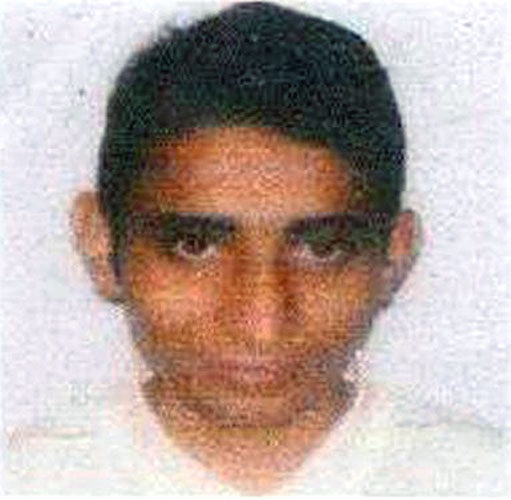The Mumbai murderers are named
Pakistan arrests members of group India has named as responsible for atrocity

The tension between Delhi and Islamabad is likely to increase after Indian police claimed they had identified the nine militants killed during the three-day Mumbai siege, and all were from Pakistan.
Police in Mumbai released what they said were the names of the nine men, along with images of eight of them. Several photographs were gruesome and apparently taken after death. One gunman had been so badly burnt no image was released. Officials said most of the attackers were from Punjab province and all were between 20 and 28. The sole surviving militant, 21-year-old Ajmal Amir Kasab, is also originally from a village in that province.
Under mounting international pressure, the Pakistan government has moved to arrest several members of Lashkar-e-Toiba (LeT), the militant group accused of plotting the Mumbai attacks, and begin shutting down some schools and colleges it operates. Initially dismissive of Indian claims that the militants were from Pakistan, the government has insisted it will prosecute those accused only if it is given evidence of their involvement. About 20 people have been arrested so far, including Zaki-ur-Rehman Lakhvi, said to be the LeT operational chief. Last night, there was no official response from the Pakistani authorities to the latest claims from Indian police.
At a briefing yesterday, Mumbai's chief police investigator, Rakesh Maria, provided the names and aliases he said had been used by the attackers. In addition to showing the photographs – some from identity cards, some bruised and charred – he also gave details of their home towns. He did not say how that information had been provided.
Mr Maria said the leader of the 10-strong team that launched a series of attacks two weeks ago, leaving 170 people dead, was Ismail Khan, a 25-year-old from Dera in Pakistan's North West Frontier Province (NWFP). He said Khan, who had been teamed with Kasab and who launched the attack on Mumbai's busy main railway station, was a veteran of other attacks blamed on the LeT. Again, he did not provide details of these alleged attacks.
"I think this shows that the detectives are having success in getting information from Kasab," said Bahukutumbi Raman, former head of the counter-terrorism division of India's external security organisation, the Research and Analysis Wing. "It was always presumed that the gunmen were from Pakistan, but the police did not have the details."
In Mumbai, Mr Maria said police believed that the 10 men had initially been introduced to each other using aliases. But during the operation, they had told each other their real names. He said the youngest of the attackers was a 20-year-old identified as Shoaib, alias Soheb, who came from Narowal district in Punjab province. He was among the handful of militants who attacked the Taj Mahal hotel. Two others came from the central Pakistani city of Multan. The chief detective also said Kasab had been asked to write a letter to his father, expressing regret for his actions. Reading from the letter, written in Urdu, Mr Maria said that Kasab said he had been "misled by these people". He said Kasab had continued: "Youngsters in the village should be told not to believe in this indoctrination."
The US has been leading the international pressure on Pakistan, calling for it to act swiftly to India's demand to crack down on those said to be involved in the attacks. It is understood that US envoys have made clear that India ought to be able to strike at suspected terror camps if Pakistan fails to move against them.
Join our commenting forum
Join thought-provoking conversations, follow other Independent readers and see their replies
Comments
Bookmark popover
Removed from bookmarks